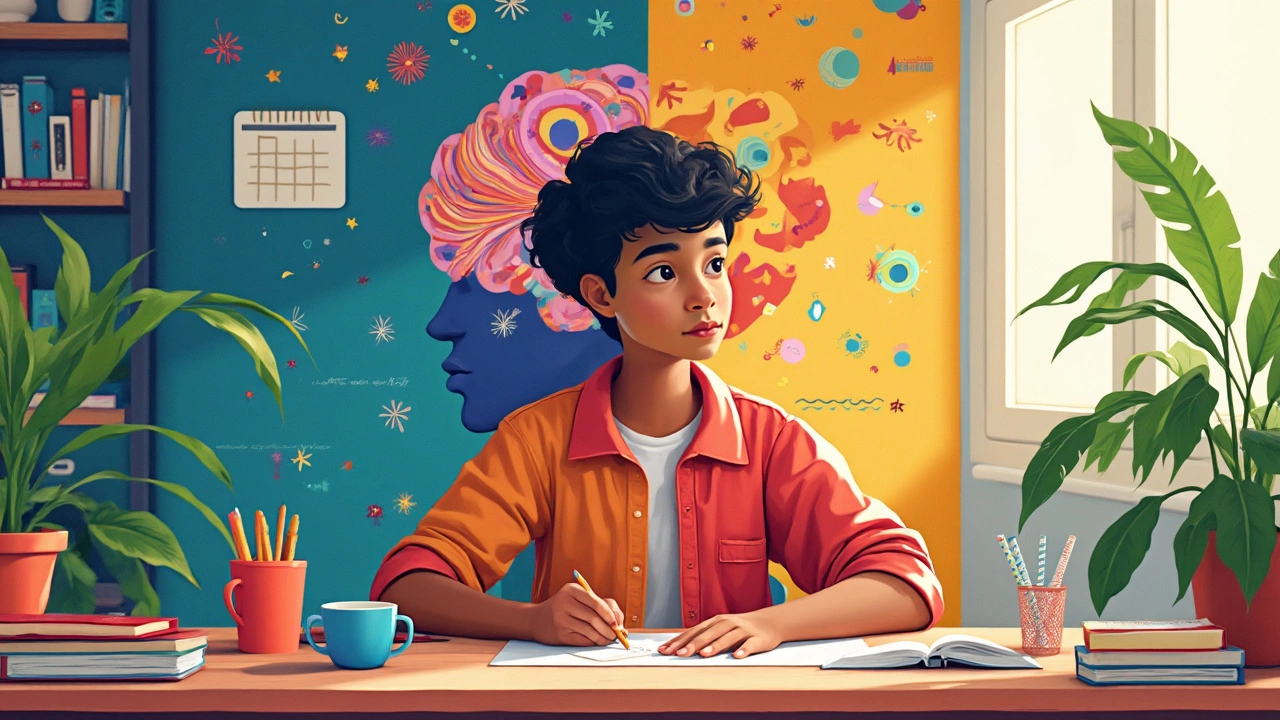ADHD – What It Is, How It Shows Up, and How to Stay Safe with Medicine
ADHD, or attention deficit hyperactivity disorder, shows up as trouble paying attention, sitting still, or controlling impulses. It’s not just a school problem – adults feel it too. If you or someone you know keeps getting distracted, feels restless, or acts without thinking, ADHD could be part of the picture.
Spotting the Signs and Getting a Proper Diagnosis
Typical signs include missing details, forgetting tasks, interrupting others, and moving around a lot. Doctors in India usually use a checklist, talk to teachers or family, and rule out other health issues before saying it’s ADHD. A proper diagnosis matters because it decides what treatment you’ll get.
Don’t rely on a quick online quiz. If the symptoms have lasted at least six months and affect school, work, or relationships, book an appointment with a psychiatrist or a qualified pediatrician. They’ll ask about your history, do a mental‑status exam, and sometimes use rating scales like the Vanderbilt or Conners.
Common Medicines and Why Safety Matters
Stimulants such as methylphenidate (Ritalin, Concerta) and amphetamine‑based drugs are first‑line treatments. They work by increasing dopamine and norepinephrine, which help the brain stay focused. A non‑stimulant option, atomoxetine (Strattera), blocks norepinephrine reuptake and is useful when stimulants cause side effects.
In India, these meds are prescription‑only, but they’re sometimes shared or bought without a doctor’s note. That can lead to misuse, higher blood pressure, sleep problems, or even heart issues. Always get the drug from a licensed pharmacy and follow the exact dose your doctor wrote.
If you notice a racing heartbeat, severe anxiety, or unexpected mood swings, call your doctor right away. Those could be signs of an overdose or a bad reaction. Never increase the dose on your own – the body can react strongly to small changes.
Beyond pills, lifestyle changes can boost the benefits. Regular exercise, a steady sleep schedule, and a balanced diet with omega‑3 rich foods (like fish or walnuts) help the brain stay calm. Simple habits such as breaking tasks into small steps and using timers can reduce the feeling of being overwhelmed.
For kids, school accommodations matter. Ask for extra time on exams, a quiet place for tests, or a seat near the teacher. These tweaks can make a big difference without any extra medication.
Remember, ADHD isn’t a permanent label. Many adults outgrow the most disruptive symptoms, while others learn to manage them with the right mix of meds and habits. Regular check‑ins with your doctor keep the treatment plan fresh and safe.
If you’re worried about the safety of a particular brand or generic version, talk to the pharmacist. In India, some generics have different inactive ingredients that can affect tolerability. A quick chat can clear up any confusion before you start.
Finally, lean on support groups. Talking with other families dealing with ADHD gives you practical tips, like how to organize school paperwork or cope with medication refill hassles. These communities often share up‑to‑date info about drug recalls or new guidelines from the Indian Council of Medical Research.
ADHD can feel overwhelming, but with the right diagnosis, safe medication, and everyday strategies, you can keep it under control. Keep the conversation open with your doctor, stay alert to side effects, and use simple tools to stay organized. That’s the best recipe for living well with ADHD in India.

Are ADHD People Neurodivergent? Facts, Realities, and What It Means
Curious if people with ADHD are considered neurodivergent? This article breaks down what neurodivergence means, how ADHD fits into the picture, and what it really looks like in everyday life. Get straight answers, clear examples, and some practical tips for people with ADHD or those supporting them. Learn how seeing ADHD as neurodivergence changes things in therapy and in daily life. Get ready for a fresh, no-nonsense take that answers the question once and for all.

Is ADHD Really a Mental Illness?
ADHD, or Attention Deficit Hyperactivity Disorder, often gets labeled as a mental illness, but the reality is more nuanced. This article explores what ADHD truly means, delves into the debate on whether it fits the bill of a mental illness, and unpacks its impact on everyday life. You'll also find tips on managing ADHD effectively, offering a real-world perspective for both those living with ADHD and those looking to understand it better.

How ADHD Impacts Life Expectancy
ADHD doesn't just affect focus; it can also influence life expectancy. Various factors such as impulsivity, health risks, and lack of treatment play a role. Understanding how ADHD relates to these factors can help in managing the condition better. We're exploring why and how ADHD can impact longevity and what steps can be taken to mitigate these risks.

Strongest Anti-Anxiety Herb: What You Need to Know
Feb, 22 2025



